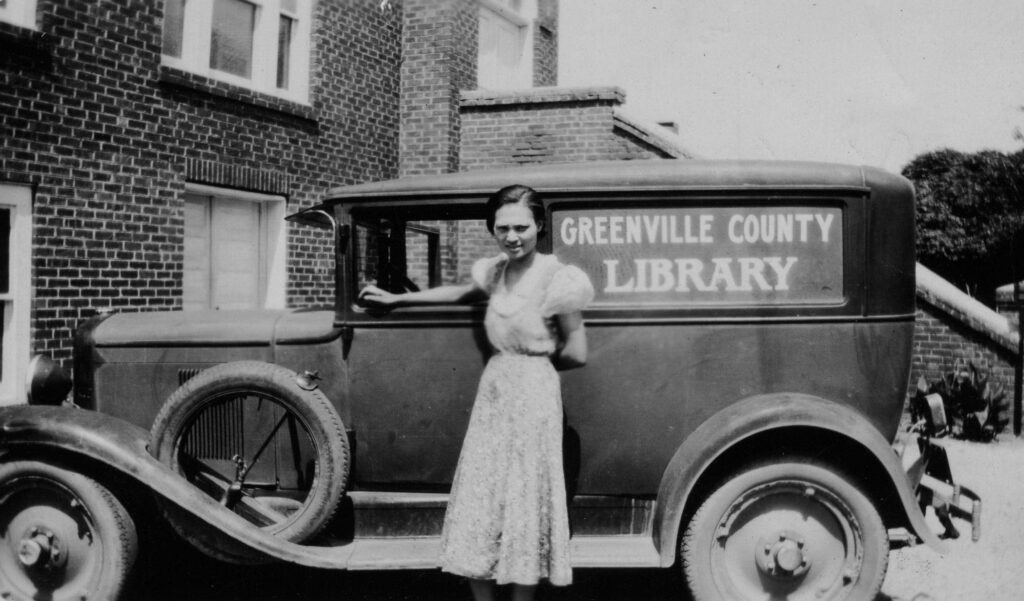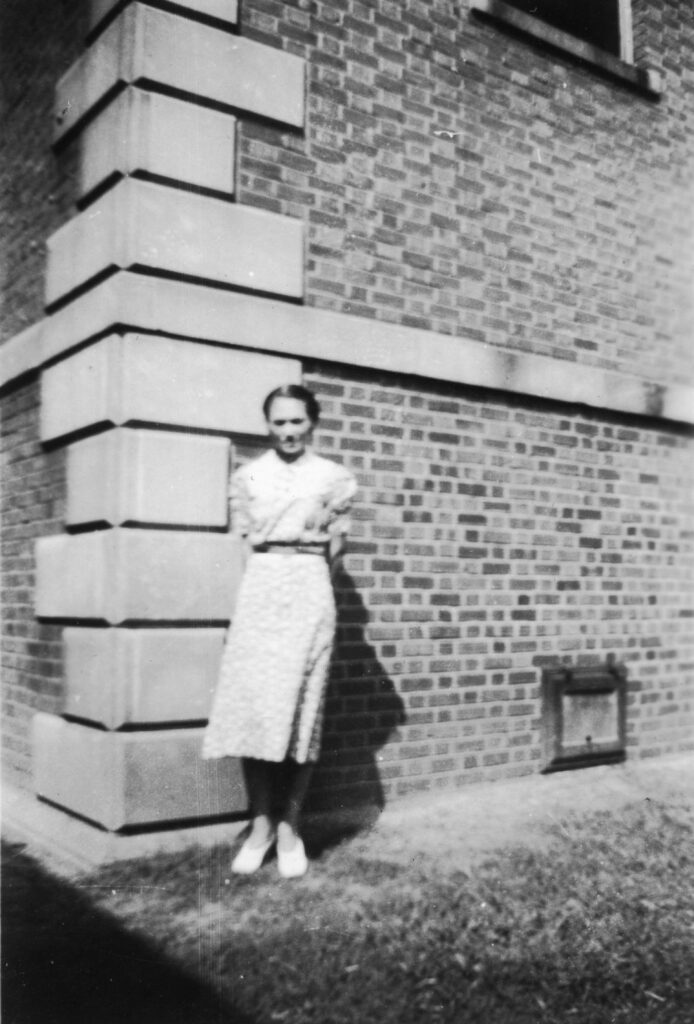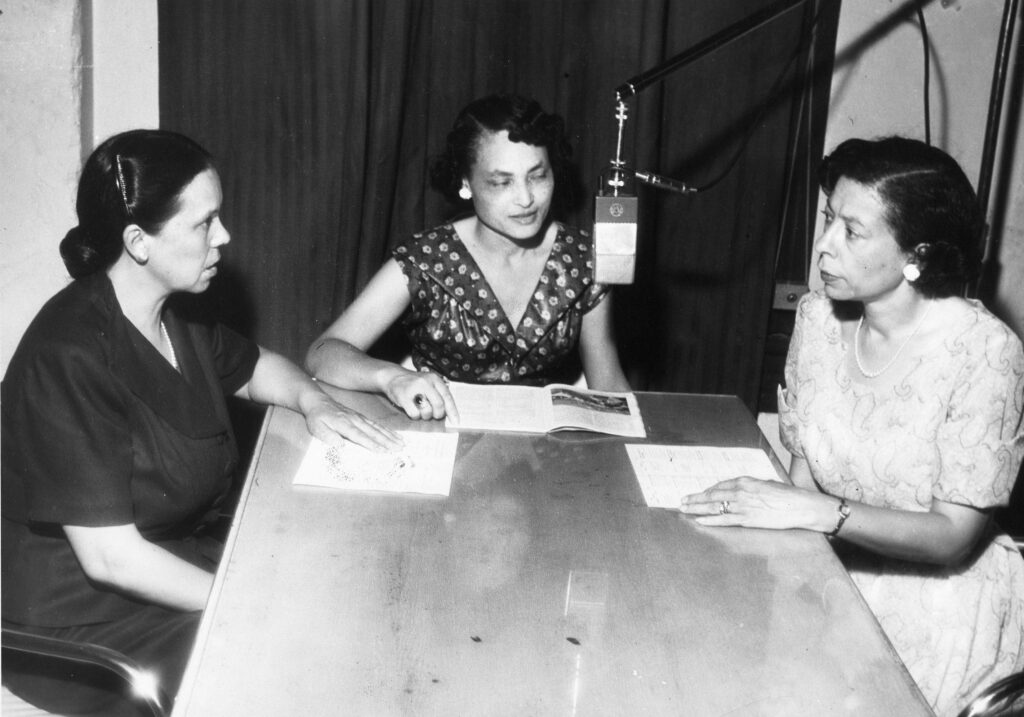Annie L. McPheeters was one of the first African American professional librarians in the Atlanta Public Library and an influential proponent of African American culture and history.
A librarian, educator, and civil rights activist, McPheeters provided library services and resources to segregated communities through educational programs for children and adults. Her efforts were recognized in 1993, when the Atlanta-Fulton Public Library System named the Washington Park/Annie L. McPheeters Branch Library in her honor. The Cary-McPheeters Gallery, the main exhibition space of the Auburn Avenue Research Library on African American Culture and History in Atlanta, is also named for her, along with librarian and educator Alice Dugged Cary.
Annie Lou Watters was born on February 22, 1908, in the Floyd County town of Berwin, to Josephine and William A. Watters. Growing up in the segregated South, she learned at a very young age the importance of education. In Library Service in Black and White: Some Personal Recollections, 1921-1980 (1988), she recalls the impact that books had on her young life: “Reading was one of my favorite subjects…. I met the poets and committed many of their verses to memory. I also met real people in my history books, and travelled to other lands in my geography texts.” Curiosity propelled her to seek knowledge through new resources at libraries; however, because public libraries throughout the South were segregated during these years, African Americans were often denied services and resources.
Watters left Berwin to further her education at Clark University (later Clark Atlanta University) in Atlanta, where in 1929 she earned a degree in English, with a minor in education. In 1933 she earned a B.S. degree in library science from the Hampton Institute School of Library Service in Hampton, Virginia. Twenty-four years later she earned an M.S. degree in library science from Columbia University in New York City. In 1940 Watters married Alphonso McPheeters, an educator.
McPheeters’s path to librarianship began in 1929, when she first worked as a teacher in the public schools of Summerville, Georgia. The following year she served as acting librarian at Clark University, and soon thereafter she started work as a teacher-librarian at St. Albans County Training School, a Rosenwald school in Simpsonville, South Carolina. This position introduced her once again to the segregated world of library service. While serving in the position of city and county librarian at the Phillis Wheatley Branch of the Greenville Public Library, she drove the bookmobile throughout the county’s rural areas. It was on those dirt roads that she witnessed the desire of many African Americans to learn.

Courtesy of Archives Division, Auburn Avenue Research Library on African American Culture and History, Atlanta-Fulton Public Library System
In 1934 Watters arrived at the Auburn Branch, on historic Auburn Avenue, of the Atlanta Public Library as an assistant librarian. She immediately set out to remedy the branch’s problems of low library use by developing several initiatives, including the Adult Education Project (AEP), which was sponsored by the American Association of Adult Education, the American Library Association, and the Julius Rosenwald Fund. Within the first year of her arrival, she used the AEP to launch the Negro History Collection, a special noncirculating collection of books by and about people of African descent, at the Auburn Branch. In 1936 she was promoted to full librarian, becoming one of the first African American professional librarians in the Atlanta Public Library.
Over the next decade she continued to grow the Negro History Collection with donations from visiting authors who traveled to Atlanta. In 1949 the collection moved with her to the newly built West Hunter Branch on the southwest side of Atlanta, near the Atlanta University Center. McPheeters remained at the West Hunter Branch until 1966, and during this time she worked with Black advocacy groups that lobbied for and won desegregation of the Atlanta Public Library in 1959, although the library’s staff remained segregated until the late 1960s. She also published several books, including Scarcity of Children’s Librarians in Public Libraries (1960) and the multivolume Negro Progress in Atlanta, Georgia (1964, 1972). In 1966 McPheeters left to work as a reference librarian at Georgia State College (later Georgia State University). The first African American to hold such a position, McPheeters remained at Georgia State until 1975.

Courtesy of Archives Division, Auburn Avenue Research Library on African American Culture and History, Atlanta-Fulton Public Library System
McPheeters continued her cultural and professional work long after her retirement from GSU in 1975. From 1977 to 1979 she worked as a library acquisitions consultant for Pergamon Press and was actively involved in Alpha Kappa Alpha sorority (cofounded by Marie Woolfolk Taylor), the Utopian Literary Club, and the Helen A. Whiting Society. She also became a vocal supporter of the new Auburn Avenue Research Library and was present at the library’s grand opening in May 1994.

Courtesy of Archives Division, Auburn Avenue Research Library on African American Culture and History, Atlanta-Fulton Public Library System
McPheeters died on December 23, 1994, at the age of eighty-six. Her papers are housed in the Archives Division of the Auburn Avenue Research Library.












